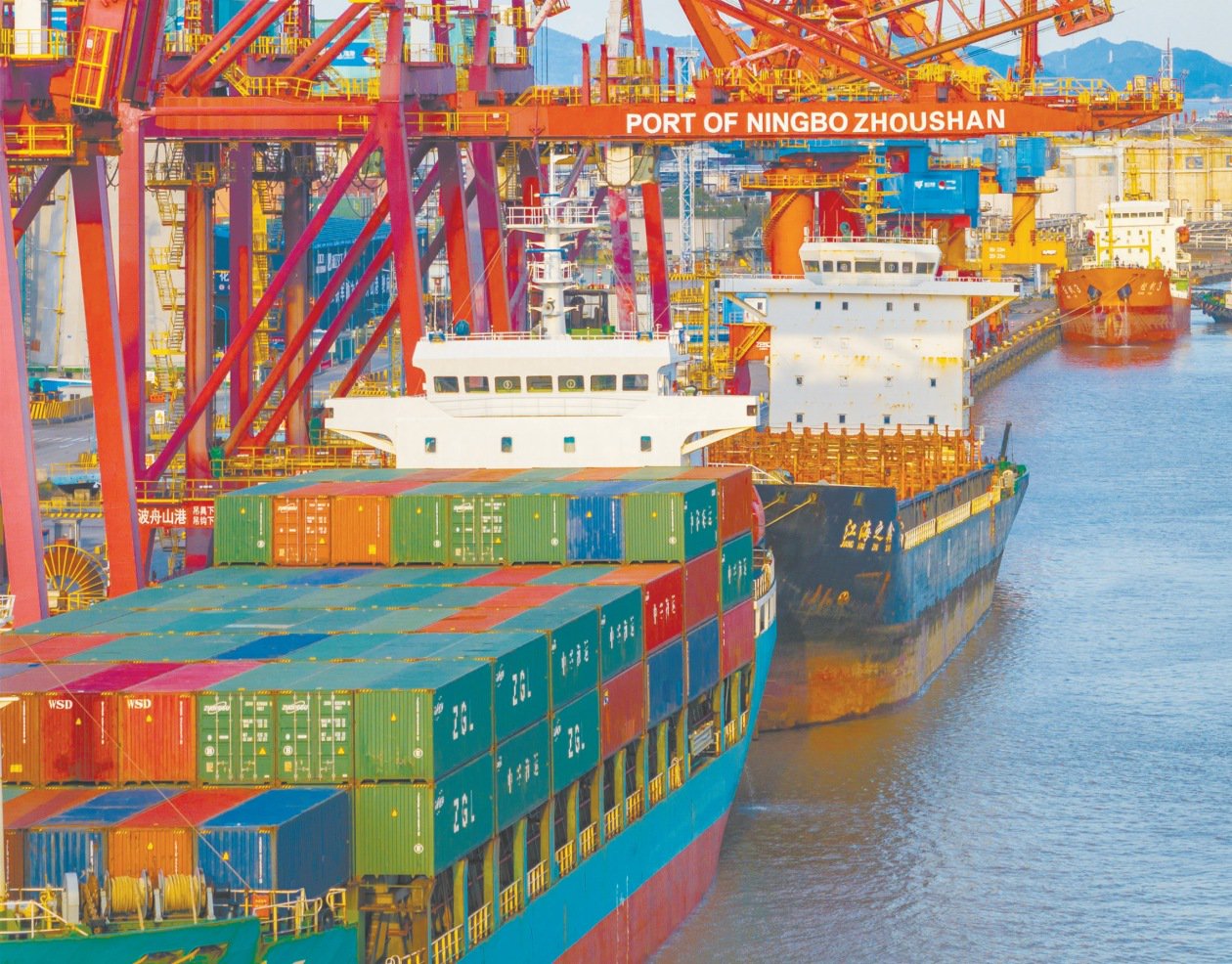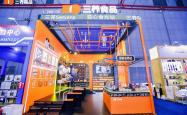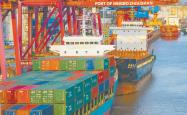Fear of tariffs, US stocks up on Chinese goods?

Editor's words: Recently, a number of foreign media reported that in response to the possible imposition of tariffs after Trump took office, US importers have opened a stockpiling mode, and strive to import more Chinese goods and raw materials before Trump's inauguration, in order to reduce the impact of tariffs on business and life. So are Chinese suppliers now receiving more orders from the United States, and how will they respond to possible changes in exports to the United States? "Global Times" reporter launched an interview investigation.
Stock up a year or two in advance? Industry insider: Not realistic
Mr. Liang, a senior practitioner in the home appliance industry, told the Global Times reporter that after Trump won the election, some importers in the United States did increase their purchases in response to possible policy changes. "However, home appliance industry importers are not currently hoarding goods one or two years in advance." This is not realistic because products change and iterate. If last year's goods are saved for this year, they may be at risk of being discounted or obsolete."
He said that at present, the industry has expectations for the imposition of tariffs after Trump takes office, and the situation of American businessmen stockpiling goods in advance exists, but the impact is limited. First of all, Trump exactly how to impose tariffs is not clear, for Chinese enterprises, in the domestic production of small appliances has a cost advantage, lower than other regions 10% to 20%, 10% tariff impact is limited, this part of the cost can be digested; Secondly, in recent years, the United States has been promoting the "de-risk" of the industrial chain, which has lasted for some time, so many companies have responded in advance, especially in the ASEAN region. In addition, US companies are more cautious about stockpiling. "Because during the epidemic, large importers in the United States have stockpiled goods, resulting in a backlog of inventory. As a result, these customers have become more careful in their inventory management after the pandemic." 'he said.
The person in charge of a thermos cup company in Yongkang City, Zhejiang province, told the Global Times reporter that there is a certain phenomenon of stockpiling by US importers in the industry, but the impact of Trump's possible tariffs is "not as big as imagined."
Mr. Li, who is engaged in the foreign trade business of glass tableware and kitchen supplies, told the Global Times reporter that in his industry, he has not observed a large number of American customers to stockpile goods or advance next year's orders to this year's purchase. Some merchants in Yiwu, Zhejiang Province interviewed by the Global Times reporter also said that "the reaction is not obvious."
In an interview with Nikkei Asian Review, the head of a technology company in Shenzhen said he had learned from suppliers that US importers were currently taking more orders than usual. American companies want to create some buffer against future uncertainty. The report also said that Microsoft, HP and Dell are scrambling to get as many electronic parts as possible before January.
Business Insider reported that some small business owners in the United States have begun to stock up to avoid future tariffs on Chinese goods and raw materials. Barba, a 39-year-old small business owner, makes cups and imports the vast majority of his materials from China. She plans to buy a year's worth of raw materials from China in advance, forcing her to pay storage fees that could run as high as $200,000. Ford, which deals in chemicals, said he was considering stockpiling chemical pigments and intended to place orders by January. It is not possible, though, to buy ingredients for the Trump presidency in advance.
China's exports rose 12.7 per cent in October from a year earlier, led by technology-related products such as chips and home appliances. Exports to the US rose 8.1 per cent in October from a year earlier. Some foreign media analysis believes that it may be caused by US businesses stepping up stockpiling. In this regard, He Weiwen, executive director of the China Association of International Trade and senior researcher of the globalization think tank, said in an interview with the Global Times on the 28th that US importers are worried that the tariff policy after Trump took office may only be part of the reason for the increase in Chinese exports in October, because Trump has not been successfully elected in October. Moreover, October's export figures to the United States were lower than September's, so the October increase cannot be attributed mainly to stockpiling.
He Weiwen said that trade delivery is a process, not the immediate stockpiling of goods once Trump wins the election. Stockpiling involves the execution of contracts, production, shipping and other links, which take time. If the importer decides to stockpile the goods, it may take several months for the goods to pass through customs before reaching the importer. If you want to know whether stockpiling is boosting China's exports, look again at the numbers for November, December and January. Considering the trend of Trump's victory in October, it is possible for some US companies to stock up in advance, but not in large areas, because it takes some time for the policy to take effect.
Talking about the recent export situation of the home appliance industry, Mr. Liang said that the recent export data to the United States is indeed increasing. In October, exports of home appliances to the United States rose 15.2 percent from a year earlier. He analyzed that from the data point of view, during the epidemic, due to the rise of the house economy, demand in Europe and the United States has increased, and the export volume of the home appliance industry to Europe and the United States has also increased. However, after the epidemic, the United States launched the so-called "de-risk" policy, and Chinese enterprises began to invest in Mexico and Southeast Asia and other regions to build factories, resulting in a decline in the industry's exports to the United States. Exports to the United States have recovered this year, and the growth is mainly concentrated in products that are in high demand in the United States, such as sweeping robots (19.960, 1.99, 11.07%), stirring products and air conditioning parts.
American consumers will pay for it
Gold, vice president of supply chain and tariff policy at the National Retail Federation, believes that U.S. companies cannot swallow all the cost of tariffs and will inevitably pass the cost on to consumers. According to the Center for American Progress, Trump's tariff plan could cost American families an average of $1,500 more a year.
Operating kitchen supplies Yiwu merchant Li Xiaoqing (a pseudonym) these years have been for the United States large supermarket supply, she told reporters, this year the United States Christmas procurement compared with previous years is not much difference, some stable American customers if the return order, her factory also has spot, you can immediately send out with counter logistics. But she also said that "now do the United States market is very tired", on the one hand, the customer requirements of the category is very much, and are very trivial orders, the factory's product line is very long, more importantly, "political factors" let Li Xiaoqing is very worried. Several years ago, American customers asked her to produce and supply in other countries.
"We do not have overseas factories," Li Xiaoqing said, these years she has been adjusting the focus of the enterprise, in the "Belt and Road" countries to find business opportunities. The US market is already very profitable, and if tariffs are imposed, it may face the day when it cannot afford it.
Zhang Jane, founder of Zhejiang Xingbao umbrella industry, also did not feel the behavior of American customers hoarding goods. Zhang Jane made it clear: "We cannot supply to the US market at a loss, and no one will make a loss." The wool comes out of the sheep, and how many tariffs the United States wants to increase will still be imposed on American consumers." Ms. Zhang said there was no American market and there were other markets.
There are also businesses that insist on opening up the American market. This is the first year that Chinese treadmill brand Yijian is testing the waters of the US market. Yijian brand founder Pan Yanjun told the Global Times reporter that at present, their products in the United States "black Five" sales are very good. He says there is a big market in developed countries for consumer goods like treadmills. For the news that Trump may impose tariffs in the future, Pan Yanjun calculated an account with reporters: "If the United States imposes a 10% tariff, there is no problem for us, because we produce in Southeast Asia, the cost is more than 20% higher than domestic production." But if you add 60 percent tariffs, you have to think of something else."
Recalling a few years ago, Li Xiaoqing visited the market in Mexico, and the local government implemented a tariff increase on Chinese products, "I was anxious at that time, our gross profit margin was only how much, and suddenly raised such a high tariff." Li Xiaoqing behind also slowly feel clear, the imposition of tariffs, will eventually be transmitted to consumers. Ms. Li also appears less anxious now.
Li Xiaoqing asked the reporter: "The knives, forks and spoons we sell to the United States are necessities for people's lives, and the United States' own production is expensive and not good, and the increase in tariffs affects the American people more, why do they do this?" Over the years, Li Xiaoqing has been running overseas markets, she is very sure that even if the United States imposes tariffs, cooking utensils are also the strengths of the Chinese people, many things are not easily transferred to other countries, and ultimately the production of these daily necessities is still mostly Chinese.
"Turn stress into Opportunity"
"The Yiwu market has not clearly felt the impact of the possible US tariffs. After all these years, Yiwu is not the kind of market where there are no orders immediately after tariffs are imposed." Zhang told the Global Times that her factory's business has been "growing quite well" this year, mainly because more and more international customers have come to Yiwu after China expanded its visa-free circle of friends, "receiving at least 8 to 10 customers from different countries a day." Some customers told Jane Zhang that even if tariffs were imposed, they would still come to purchase, and they could not find such good products from China anywhere else.

Before the Global Times reporter connected Zhang Jane's phone, he saw that the call page was a video of her product introduction recorded on camera. Zhang Jane proudly told reporters: "We use all available resources, once customers contact us, they can see our carefully prepared content." In the global context, our confidence is not easily replaced."
Zhang said that over the years, there are always customers from some countries to steal her factory, but Zhang said that they can not copy the advantages of China's supply chain, "do not underestimate a small umbrella, it has more than 200 parts, it is not a nail!" Under the advantages of complete supply chain, the umbrella styles of Zhang Jiying factory are updated every day. In contrast, countries such as India can also produce small goods, but only in a limited number of styles. Zhang Jian said, for example, just like clothing, you do a simple one or two styles must be OK, but if you do more complex and good-looking styles, involving a lot of materials, parts, to purchase may not be so perfect supply channels. She believes it will take years for countries developing small commodity industries, such as India, to develop a supply chain as sophisticated as China's.
In fact, in order to enter the market of developed countries and avoid being trapped by measures such as tariffs, Pan Yanjun began to adjust his strategy from 3 years ago to focus on technology improvement, and Yijian has also obtained a lot of invention patents in the field of treadmill in recent years. At the same time, Pan Yanjun also sees the importance of the supply chain, opening up the industrial chain of the treadmill, and paying attention to quality and cost in every link from procurement, production to design.
In addition, Pan Yanjun is also laying out factories in many countries. Up to now, he said he was not particularly worried about the future, "We have the technology in reserve, do not let us ship from China, we will ship from other countries." He expressed optimism that Americans will always figure it out, and imposing tariffs on such products as treadmills can only make American consumers spend more money in the end, and he hopes to "turn the pressure brought by Trump into an opportunity" to survive the difficult period and usher in spring.
本文 zblog模板 原创,转载保留链接!网址:http://www.wgzbl.com/?id=18
1.本站遵循行业规范,任何转载的稿件都会明确标注作者和来源;2.本站的原创文章,请转载时务必注明文章作者和来源,不尊重原创的行为我们将追究责任;3.作者投稿可能会经我们编辑修改或补充。








